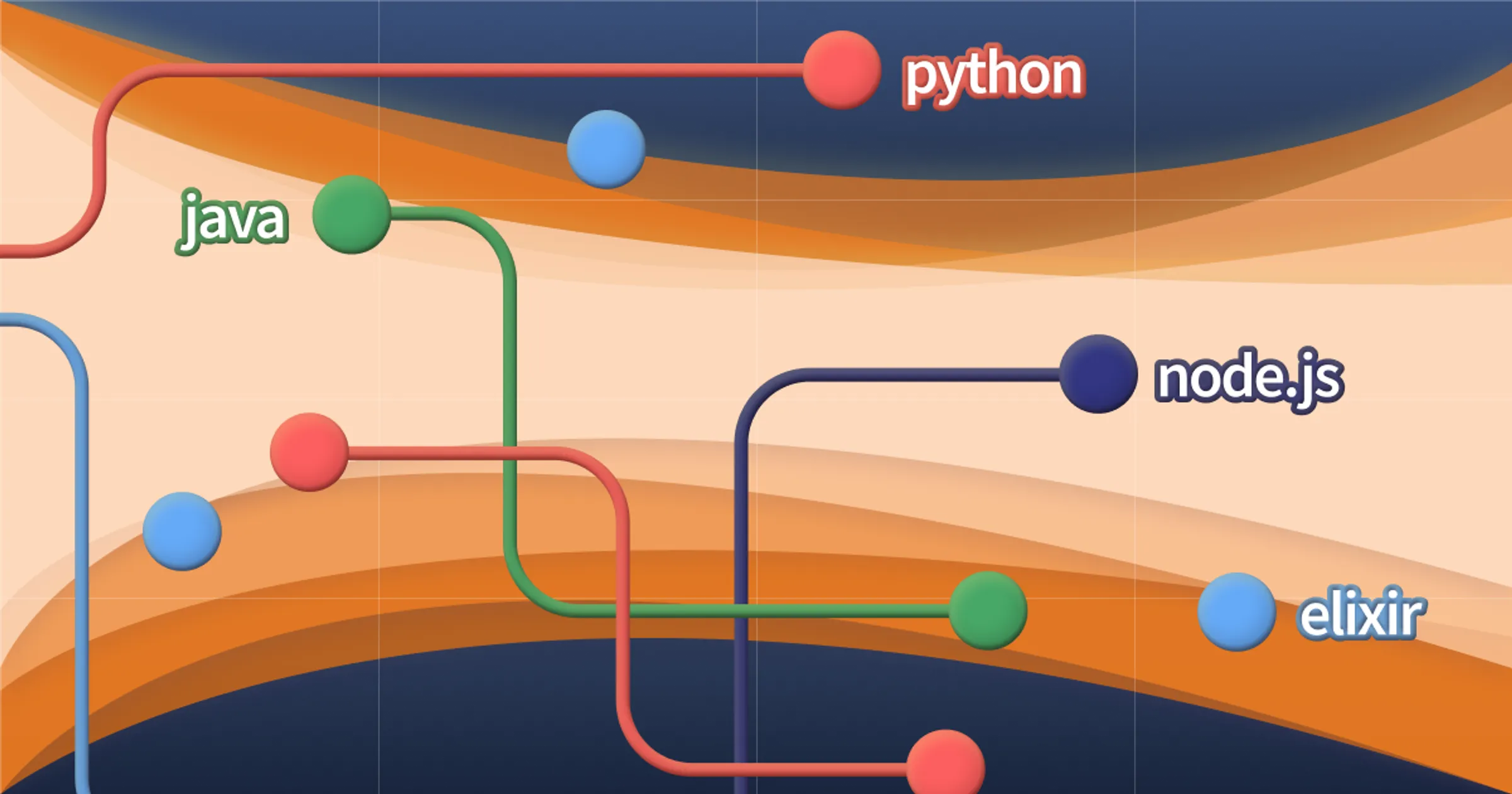Introduction
The landscape of programming education has been revolutionized by artificial intelligence. In 2025, AI tools are not just helpful companions for developers—they're essential learning accelerators that can transform how you approach coding, debugging, and problem-solving. This guide will show you how to leverage AI to become a better programmer faster than ever before.
Why AI is a Game-Changer for Learning to Code
Traditional programming education often follows a linear path: learn syntax, understand concepts, practice with projects, and gradually build expertise. AI tools compress this timeline by providing instant feedback, explanations, and solutions that help you understand complex concepts more quickly.
Key Benefits of AI-Assisted Learning
- Instant Feedback: Get immediate responses to your questions and code
- Personalized Learning: AI adapts explanations to your skill level
- 24/7 Availability: Learn at your own pace, anytime
- Real-World Examples: AI can generate practical code samples
- Mistake Prevention: Catch errors before they become habits
Essential AI Tools for Learning to Code
Not all AI tools are created equal. Here are the most effective ones for programming education:
AI Code Assistants
- GitHub Copilot: AI-powered code completion and suggestions
- Amazon CodeWhisperer: Security-focused AI code generation
- Tabnine: AI code completion for multiple languages
- Kite: Python-focused AI coding assistant
AI Learning Platforms
- ChatGPT: General-purpose AI for explanations and problem-solving
- Claude: Advanced reasoning and code analysis
- Bard: Google's AI for learning and research
- Perplexity: AI-powered research and learning
How to Use AI to Learn Programming Concepts
AI excels at explaining complex programming concepts in simple terms. Here's how to use it effectively:
Concept Explanation
When you encounter a new programming concept, ask AI to explain it in multiple ways:
- Simple Explanation: "Explain recursion like I'm 10 years old"
- Real-World Analogy: "Give me a real-world example of polymorphism"
- Step-by-Step Breakdown: "Walk me through how a binary search works"
- Common Mistakes: "What are common pitfalls when learning async/await?"
Code Understanding
Use AI to understand existing code:
- Code Comments: Ask AI to add detailed comments to complex code
- Function Explanation: "What does this function do and how does it work?"
- Algorithm Analysis: "Explain the time complexity of this algorithm"
- Best Practices: "How could this code be improved?"
AI-Powered Debugging and Problem Solving
One of the most valuable uses of AI in programming is debugging. Here's how to leverage it effectively:
Error Analysis
When you encounter an error:
- Copy the Error: Paste the complete error message into AI
- Provide Context: Include relevant code and what you're trying to do
- Ask for Explanation: "What does this error mean and why is it happening?"
- Request Solutions: "How can I fix this error?"
- Learn Prevention: "How can I avoid this error in the future?"
Problem-Solving Approach
Use AI to break down complex problems:
- Problem Analysis: "Help me understand what this problem is asking for"
- Solution Planning: "What steps should I take to solve this?"
- Pseudocode Generation: "Help me write pseudocode for this solution"
- Implementation Help: "How would I implement this in [language]?"
Building Projects with AI Assistance
AI can help you build real projects while learning. Here's the approach:
Project Planning
- Idea Generation: "Suggest beginner-friendly project ideas for learning [technology]"
- Feature Planning: "What features should I include in a [type of app]?"
- Architecture Design: "How should I structure this project?"
- Technology Stack: "What technologies should I use for this project?"
Implementation Support
- Code Generation: Ask AI to generate starter code for specific features
- Problem Solving: When you get stuck, ask AI for guidance
- Code Review: Ask AI to review your code and suggest improvements
- Testing Help: "How should I test this functionality?"
Best Practices for AI-Assisted Learning
To maximize the benefits of AI while developing genuine programming skills:
Don't Over-Depend on AI
- Try First: Attempt to solve problems yourself before asking AI
- Understand, Don't Copy: Make sure you understand the AI's solution
- Practice Implementation: Type out the code yourself, don't just copy-paste
- Ask for Explanations: Always ask "why" not just "how"
Use AI as a Learning Partner
- Ask Follow-up Questions: Dig deeper into concepts you don't understand
- Request Multiple Approaches: "Show me different ways to solve this"
- Compare Solutions: "What are the pros and cons of these approaches?"
- Learn Best Practices: "What are the industry standards for this?"
Learning Paths with AI
Here are structured learning paths you can follow with AI assistance:
Beginner Path (0-6 months)
- Fundamentals: Learn basic syntax and concepts with AI explanations
- Simple Projects: Build basic applications with AI guidance
- Problem Solving: Practice with coding challenges using AI hints
- Code Review: Have AI review your code and explain improvements
Intermediate Path (6-18 months)
- Advanced Concepts: Learn design patterns, algorithms, and architecture
- Complex Projects: Build larger applications with AI assistance
- Code Optimization: Use AI to learn performance optimization techniques
- Testing and Debugging: Master debugging with AI tools
Advanced Path (18+ months)
- System Design: Learn to design scalable systems with AI guidance
- Code Quality: Use AI to learn advanced code quality practices
- Performance Tuning: Master performance optimization with AI analysis
- Mentorship: Use AI to help others learn programming
Common Mistakes to Avoid
While AI is powerful, there are pitfalls to watch out for:
Over-Reliance on AI
- Not Understanding Code: Don't use AI-generated code without understanding it
- Missing Fundamentals: AI can't replace understanding core concepts
- Lack of Practice: You still need to write code yourself
- No Problem-Solving Skills: Don't let AI solve all your problems
Poor Prompting
- Vague Questions: Be specific about what you need
- No Context: Provide relevant background information
- Not Iterating: Ask follow-up questions to clarify
- Ignoring Explanations: Don't just take the code, understand why it works
Measuring Progress with AI
Track your learning progress effectively:
Skill Assessment
- Regular Quizzes: Ask AI to create quizzes on topics you've learned
- Code Reviews: Have AI review your code and rate your progress
- Problem Difficulty: Gradually increase the complexity of problems you tackle
- Project Complexity: Build increasingly complex projects
Knowledge Gaps
- Identify Weak Areas: Ask AI to identify areas where you need improvement
- Custom Learning Plans: Have AI create personalized learning paths
- Practice Recommendations: Ask for specific exercises to strengthen weak areas
Future of AI in Programming Education
The integration of AI in programming education is just beginning. Here's what to expect:
Emerging Trends
- Personalized Learning: AI will adapt to your learning style and pace
- Interactive Tutorials: AI-powered interactive coding lessons
- Real-Time Feedback: Instant feedback as you code
- Adaptive Difficulty: Problems that adjust to your skill level
New Learning Modalities
- Voice-Based Learning: Learn programming through conversation
- Visual Programming: AI-assisted visual programming tools
- Collaborative Learning: AI-facilitated group learning experiences
- Gamification: AI-powered programming games and challenges
Conclusion
AI is transforming how we learn to code, making programming education more accessible, personalized, and effective than ever before. By strategically integrating AI tools into your learning process, you can accelerate your programming journey while developing a deeper understanding of the craft.
Remember that AI is a powerful learning partner, not a replacement for genuine understanding and practice. Use it to enhance your learning, not to bypass the hard work of becoming a skilled programmer. The most successful developers will be those who can effectively leverage AI while maintaining strong fundamental skills and problem-solving abilities.
Ready to start your AI-assisted programming journey? Begin with small projects, ask lots of questions, and gradually build your skills. The future of programming education is here, and it's more exciting than ever.



